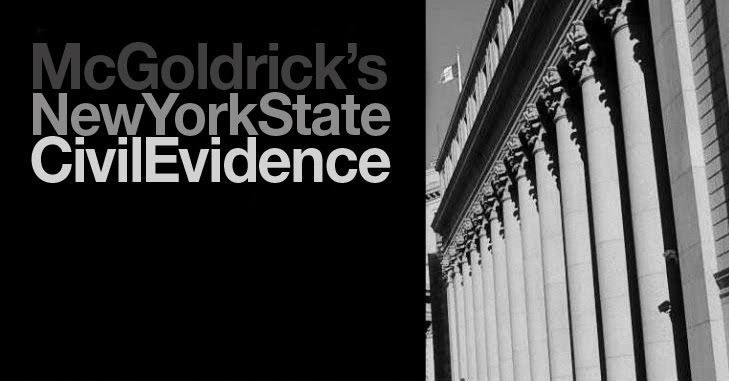In Lang v Newman 2009 NY Slip Op 04696 the trial plaintiff experienced symptoms and was transported for treatment to hospital where she was examined by defendant doctors in succession, the latter of which ordered a CT scan, but not admit her for treatment and gave her headache medication after she declined to undertake a more invasive diagnostic procedure.
Shortly after, after ordering the plaintiff undertake an MRI, the plaintiffs primary physician (not a defendant) diagnosed her as having suffered a stroke and admitted the plaintiff to a different hospital where she was given anti-coagulant medication.
The plaintiff commenced an action against the defendant doctors and their medical groups and was successful against the second doctor (who had assumed her care on the first doctor's ending of his shift) on the grounds that she had suffered permanent injuries from the stroke, by reason that she was not admitted to hospital for further diagnosis and treatment. The plaintiff was not successful on grounds that the doctors had failed to administer an anti-coagulant drug.
The Appellate Division affirmed the trial verdict, over a 2 justice dissent.
The Court of Appeals affirmed:
"Evidence is legally insufficient to support a verdict if "there is simply no valid line of reasoning and permissible inferences which could possibly lead rational men to the conclusion reached by the jury on the basis of the evidence presented at trial" (Cohen v Hallmark Cards, 45 NY2d 493, 499 [1978]). Plaintiff's expert testified that if Firman had admitted plaintiff to the hospital rather than discharging her, the stroke would have been diagnosed, she would have been given an anticoagulant, and the failure to administer that medicine resulted in "a little larger stroke than she should have had if she was properly treated." Despite the fact that the expert also stated that it was "very hard to quantify" precisely how much additional damage plaintiff suffered as a result of Firman's negligence, we cannot say that the jury's finding of liability on this theory was "utterly irrational" (id.) or that no basis of proof existed to support the verdict. Consequently, the verdict was based on legally sufficient evidence."
skip to main |
skip to sidebar



About The Author
- Gregory McGoldrick, Esq.
- Gregory McGoldrick, Esq., of the New York State Bar.
Since 2009, McGoldrick's New York State Civil Evidence, The Original New York Evidence Resource For Civil Practice Counsel - Straight To Your Android, BlackBerry or iPhone.
Table of Contents
- "human factor" standard
- "legally sufficient" evidence standard
- "utterly irrational" standard
- 1st Dept
- 2nd Dept
- 3rd Dept
- administrative proceeding
- admission in deposition testimony
- admission in former pleading
- admission in pleadings
- admissions against interest
- adverse inference limitation
- affidavit contrary to deposition testimony
- affidavit of service
- App Term 1st Dept
- appeal of directed verdict
- appeal of trial court's discretion
- burden of proof
- business records exception
- child support
- contempt
- contract of insurance
- cooperation clause
- Court of Appeals
- CPLR 2106
- CPLR 3101
- CPLR 3211
- CPLR 3212
- CPLR 4506
- CPLR 4506(1)
- CPLR 4513
- CPLR 4518
- CPLR 4518(a)
- CPLR 503(a)
- CPLR 5501
- criminal conviction
- damages based on probability
- Domestic Relations Law 245
- eavesdropping
- Education Law 6512
- email transmission
- exception to rule against hearsay
- excited utterance
- existence of liability insurance
- expert opinion based on independent report
- expert testimony
- expert witness
- felon witness
- former testimony
- foundation
- FRE 801(d)(2)(B)
- government agency guidelines
- hearing on service
- husband and wife
- implied revocation of authority
- incidental admission
- inconsistent facts
- inconsistent facts in expert testimony
- industry standards
- informal admission
- Insurance Law 5102(d)
- insured's statement to insurer
- intercepted communication
- judicial admission
- Judiciary Law 756
- medical expert
- medical records
- negligence
- negligent design
- New York State CPLR Civil Evidence Resource
- non mandatory guidelines
- Notice of Claim
- notice of condition
- official documents
- oral testimony in support of written Notice of Claim
- particularity
- Penal Law 156.10
- Penal Law 250.05
- photographs
- pleadings
- police accident report
- preclusion of expert witness
- present sense impression
- prevailing standards
- prima facie case of negligence
- prior conviction on plea
- prior notice of condition
- professional reliability exception
- proof of service
- qualification of expert witness
- qualification of expert witness\
- rebuttal of proof of service
- redaction of hospital records
- relevance of conviction to issue
- remoteness of time
- res ipsa loquitur
- retraction of admission
- rule against hearsay
- Section 50-H Examination of Claim
- Section 50-H General Municipal Law
- self-authentication
- serious injury
- spoliation of evidence
- stored communication
- summary judgment
- terms of request made of witness
- triable issue of fact
- unsworn expert evidence
Disclaimer
The information in this site is published as an interim point of reference for civil litigation counsel in the state of New York. There is nothing in this site that should be taken by you to be legal advice. Accessing or reading the information in this site does not create an attorney-client relationship between you and the author.
Return to McGoldrick's New York Civil Evidence
Since 2009, The Original New York Evidence, Disclosure & E-Discovery, and Deposition Practice Resource for Civil Practice Counsel - Straight To Your Android, BlackBerry, iPhone or iPad.
Since 2009, The Original New York Evidence, Disclosure & E-Discovery, and Deposition Practice Resource for Civil Practice Counsel - Straight To Your Android, BlackBerry, iPhone or iPad.
